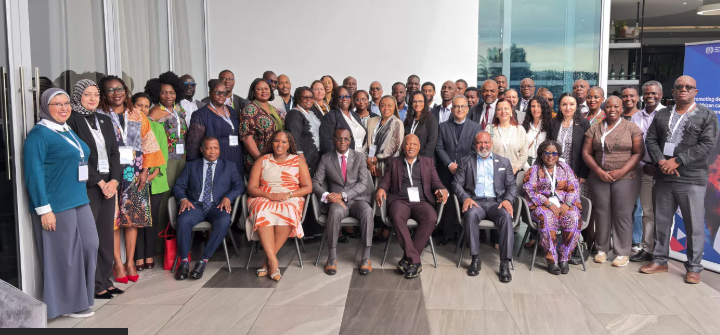Africa Sets Continental Roadmap to Formalise Cultural and Creative Economy for Decent Jobs and Growth


Quidah is an online platform that connects investors with curated opportunities and expert insights on Africa’s emerging markets, while offering businesses promotional services, partnership facilitation, and market intelligence to attract capital and grow their operations.
Industries
A landmark workshop in Johannesburg has brought together governments, unions, and employers’ organisations from across Africa to chart a transformative course for the continent’s cultural and creative economy (CCE). Over four days, delegates from eight countries Democratic Republic of Congo, Egypt, Mali, Nigeria, Senegal, South Africa, Tanzania, and Zimbabwe agreed on national roadmaps that aim to formalise informal work, strengthen social protections, and unlock the CCE’s full economic and social potential.

Hosted by the International Labour Organization (ILO) and the ITCILO, in partnership with the African Union, the gathering marked a turning point in pan-African coordination around employment in arts, media, and culture. Participants tackled structural issues such as gender inequality, skills development, precarious working conditions, and the impact of digital transformation. The workshop builds on prior international discussions, including the ILO’s 2023 Geneva meeting, and aligns with Sustainable Development Goal 8: promoting decent work and inclusive economic growth.
The cultural and creative sectors are recognised as major engines of innovation, identity, and employment across Africa. Yet, widespread informality and a lack of legal protections continue to hinder the sector’s potential. ILO Africa Deputy Regional Director Coffi Agossou emphasised in his address that all cultural workers whether freelance or institutional deserve the right to fair pay and safe conditions.
By fostering knowledge exchange and regional collaboration, the workshop laid the foundation for actionable change. Delegates designed country-specific roadmaps with concrete timelines and assigned responsibilities to drive implementation. According to South African Guild of Actors Chair Jack Devnarain, the initiative is vital to ensure that recent national democratic gains are extended to the creative industries.
This structured roadmap presents several immediate opportunities for entrepreneurs and investors:
- Cultural Enterprise Hubs: There is growing demand for co-creation spaces, production studios, and business incubators tailored to small creative enterprises and freelancers. Investors could partner with governments to develop these facilities.
- LegalTech & FinTech for Creatives: The transition from informality will require scalable solutions to support contracts, copyright, payments, and royalties. Startups and digital platforms that offer transparent services could thrive in this niche.
- Training and Workforce Platforms: With upskilling a key goal, companies that offer digital courses, certifications, or vocational workshops—especially those tailored to the arts can play a pivotal role and attract public-private funding.


